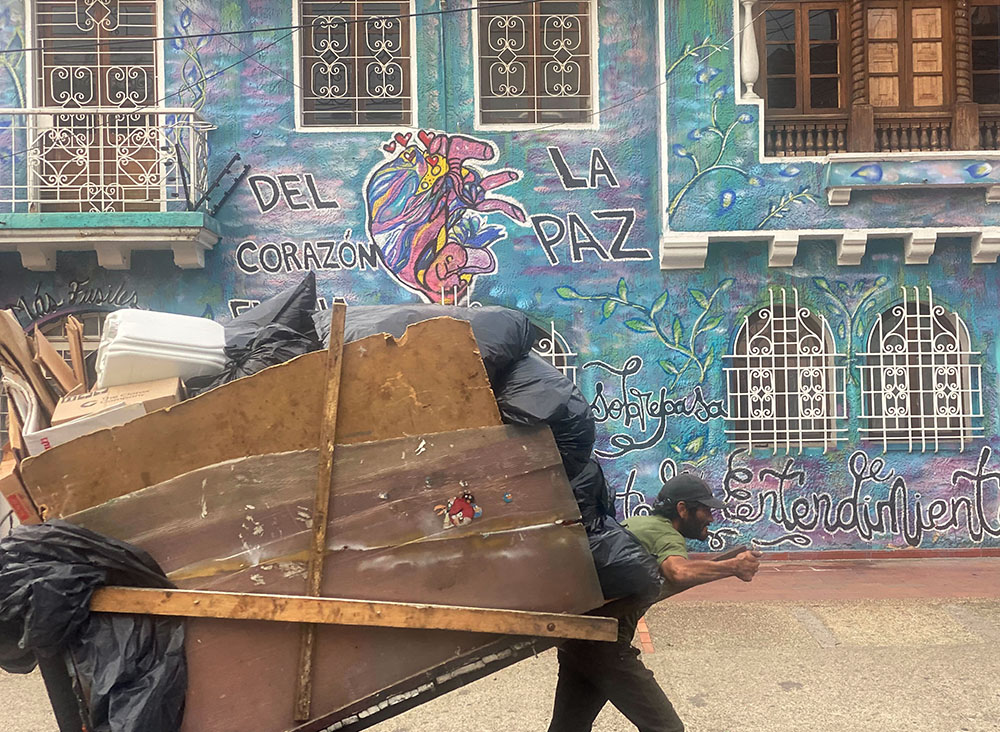In conflicts around the globe, past and present, human rights are often violated. Since 1898, with the beginning of modern Catholic social teaching, every pope since Pope Leo XIII has promoted the range of human rights: economic, social, cultural, civil and political.
In the last 60 years, all our recent pontiffs have affirmed the importance of these rights. Pope St. John XXIII promoted the rights to food, clothing, shelter, medical care, and all necessary social services, especially for those in poverty, for the disabled and for the elderly. Pope St. John Paul II, who had done physical work under the Nazis, championed the rights of workers; he also lived under communist repression and spoke out about civil and political rights. Pope Benedict XVI declared that authentic peace in and among nations could only be possible if the entire range of human rights was honored in every country.
Pope Francis followed his predecessor by emphasizing peace through human rights; he also is concerned with the rights of migrants and refugees. As the popes before him, Francis recognized the importance of the United Nations' 1948 Universal Declaration of Human Rights and "the self-evident and commonly accepted rights" this document details.
The article about the sisters in Colombia mentions human rights violations and also the advocacy sisters supported, calling for the government to account for these violations. The church has promoted a wide range of human rights since the end of the 19th century. The following activity will help students learn about human rights and the church's support of such rights.
Assign students to small groups.
Explain that a new country is forming and that each group is a "committee" to draft an initial list of human rights that would benefit this new nation.
Ask them to consider what rights should be guaranteed so the residents can lead lives of dignity and flourish as human beings, so they can be informed and involved citizens and contribute to the common good of their country. Remind them these are central values of Catholic social teaching.
Allow the groups 10-15 minutes to brainstorm a list of rights, considering what rights support the life and dignity of the human person. (If you have more time, you may choose to allow them a limited time for online research on human rights after they brainstorm.)
Have each group share their list with the entire class.
What specific rights seemed to come up for each group? Why do you think that happened?
Pope St. John XXIII declared that human beings, each made in the image of God, had the right to all that contributed to "the proper development of life, particularly food, clothing, shelter, education, medical care, rest, and, finally, the necessary social services" for those who are disabled, poor and/or elderly. Did any group include these rights? Why or why not?
Pope St. John Paul II promoted the right to work, the right to fair wages that allowed for a decent life, the right of workers to organize and negotiate with employers. Did any group include these rights? Why or why not?
John Paul II, who lived under a repressive communist government, also promoted the right to vote in fair elections, the right to freedom of opinion and expression, the right to participate in political discussion and in the political process without fear of reprisals. Did any group include these rights? Why or why not?
Pope Francis supported the rights of people to migrate to have a life of dignity and security and the right to political asylum. Did any group include these rights? Why or why not?
(Note: Since being approved by the United Nations in 1948 when Pope Pius XII was head of the church, the Universal Declaration of Human Rights has been publicly supported by all popes who followed.)
What have you learned from this activity and discussion?
Creator God, you made us all in your own image and bestowed on us great dignity as your children. Guide us to affirm our own dignity, to act with a sense of that dignity, to respect ourselves, our talents, and the challenges of our faith. Help us to recognize and affirm the dignity and the rights of all our sisters and brothers, especially those who are oppressed and suffering. Give us the compassion and courage to become advocates for those who are denied their human rights so we may build the kingdom of God, a place of justice and peace. Amen.
Tell us what you think about this resource, or give us ideas for other resources you'd like to see, by contacting us at [email protected].
